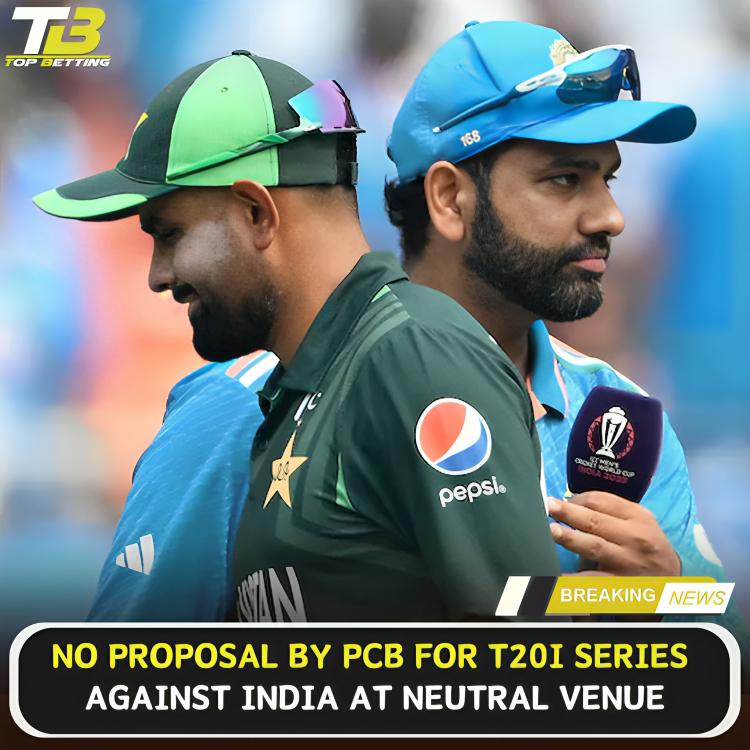
No proposal by PCB for T20I series against India
Background of the proposed T20I series between India and Pakistan
The potential clash between India and Pakistan on the cricket field has always been a highly anticipated event for fans across the globe. The rivalry between these two cricketing giants is unparalleled, with their matches often generating immense excitement and captivating audiences worldwide. The idea of the two teams facing off in a T20I series at a neutral venue had been a topic of discussion for some time, with fans eagerly awaiting the opportunity to witness the electrifying encounter.
The last time India and Pakistan played a bilateral series was in 2012-13, when Pakistan toured India for a limited-overs series. Since then, the two teams have only met in major international tournaments, such as the Cricket World Cup and the Asia Cup. The lack of regular cricketing encounters between the arch-rivals has only heightened the anticipation and demand for a standalone series, especially in the T20 format, which is known for its fast-paced and unpredictable nature.
The prospect of a neutral venue for the T20I series had been widely discussed, as it would provide a neutral ground for the two teams to compete without the added political tensions that often come with matches played in either country. Neutral venues have been used in the past for high-profile cricket series, such as the ICC Champions Trophy, and have proven to be successful in creating a more neutral and unbiased atmosphere for the players and fans alike.
PCB’s decision not to propose a neutral venue
In a surprising turn of events, the Pakistan Cricket Board (PCB) has announced that they have not proposed a T20I series against India at a neutral venue. This news has come as a disappointment to cricket enthusiasts around the world, who were eagerly looking forward to the highly anticipated clash between the two cricketing giants.
The PCB’s decision not to propose a neutral venue for the T20I series has raised many questions and concerns among fans. Given the long-standing rivalry between India and Pakistan, and the immense interest and demand for such a series, the decision not to pursue it at a neutral venue has left many puzzled and disappointed.
The PCB’s statement has been met with a mix of reactions, with some questioning the reasoning behind the decision, while others speculate that it may be a result of the ongoing political tensions between the two nations. The lack of a clear explanation from the PCB has only added to the confusion and uncertainty surrounding the future of cricketing relations between India and Pakistan.
Reasons behind PCB’s decision
The PCB’s decision not to propose a T20I series against India at a neutral venue has been met with a significant amount of speculation and analysis. While the board has not provided a detailed explanation for its decision, there are several potential factors that may have influenced the decision-making process.
One of the primary reasons could be the ongoing political tensions between India and Pakistan. The two countries have a long and complex history of political and diplomatic conflicts, which have often spilled over into the realm of sports. The PCB may have determined that the political climate was not conducive to hosting a bilateral series, even at a neutral venue, as it could potentially lead to further tensions and complications.
Another factor that may have played a role in the PCB’s decision is the financial viability of such a series. Hosting a T20I series at a neutral venue would likely involve significant logistical and financial challenges, including the costs of venue rental, travel, and accommodation for the teams and support staff. The PCB may have concluded that the potential financial risks outweighed the potential benefits of hosting the series, especially in the current economic climate.
Additionally, the PCB may have been concerned about the potential security challenges of hosting a high-profile cricket series at a neutral venue. Given the heightened security concerns in many parts of the world, the board may have deemed it prudent to avoid the risks associated with hosting a series in a foreign country, where the logistics and security arrangements may be more complex and challenging to manage.
Conclusion
The decision by the PCB not to propose a T20I series against India at a neutral venue has been a significant disappointment for cricket fans around the world. The lack of a high-profile cricketing encounter between the two arch-rivals has left many feeling frustrated and uncertain about the future of the India-Pakistan rivalry on the cricket field.

The reasons behind the PCB’s decision are complex and multifaceted, with political and diplomatic tensions, financial considerations, and security concerns all likely playing a role. The implications of this decision extend beyond the cricketing realm, potentially impacting the broader relationship between India and Pakistan and the regional geopolitical landscape.











